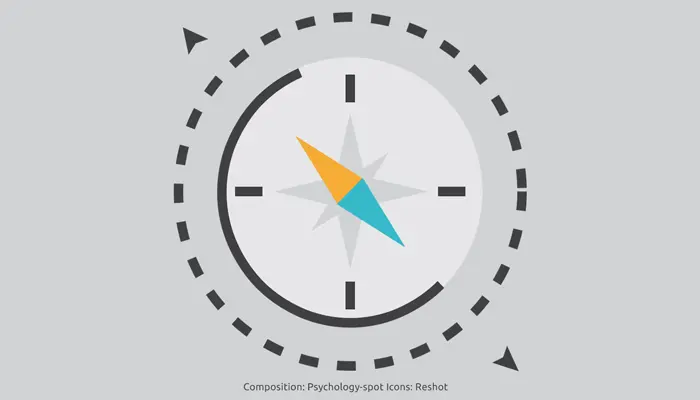
“Nothing is more difficult, and therefore more precious, than the ability to know how to make decisions,” said Napoleon Bonaparte. And he was not wrong. Every day we make hundreds of decisions, most of them inconsequential but others are of vital importance in deciding the direction of our lives. When the stakes are high, the degree of uncertainty is high, and emotions take over, it is difficult to decide. In those cases, the compass technique can become an excellent tool.
The 5 essential questions to make decisions
The compass technique is actually very simple and is based on five fundamental questions, questions that you should ask yourself every time you need to make an important decision. However, it would be advisable for you to write everything down on paper because sometimes putting things in black and white helps you clarify your ideas and assume psychological distance.
1. Where do you come from? It does not refer to your city of origin but to your circumstances. That is, what is your training, what are your origins, what are the most significant events in your life that have led you to that point on the path. It is summarizing your life in a few events or decisions that have truly marked your course.
2. What is truly important to you? Write four things that you could not give up in your life, without which your existence would never be the same. These are your four cardinal points.
3. Who really counts in your life? It refers to the people who can really influence your decisions, those people you listen to and trust.
4. What stops you? It is likely that you have not yet made a decision because something scares you, some obstacle stops you, or a person keeps you stuck in your current situation. Write down everything that keeps you within your comfort zone.
5. What motivates you? New paths or opportunities must also have aspects that motivate you and are attractive. Write them down.
The six courses of action
Once you have clarified the really important things in your life, you know the obstacles and the aspects that motivate you, the time has come to make a decision. The compass technique proposes six courses of action.
1. The path that fascinates you. What is the decision you like the most, the path that really fascinates you? If in the past you have followed your instinct and been successful, if you love trying new experiences and the people who are significant to you support you, then there is a good chance that this is the most appropriate route.
2. The route you have always dreamed of. Sometimes this path is not the simplest but it corresponds to your aspirations, hopes and dreams. If you are going to choose it, you will need to have a very solid motivation since it often demands great sacrifices but the reward is immense.
3. The rational way. What do the people you trust, those who normally make cautious and logical decisions, suggest to you? If security is important to you and you want to reduce the level of risk, this is the best solution.
4. The known way. If you are a person attached to customs and habits are important to you, perhaps walking a known path is the best option. Of course, make sure to provide enough new elements so that you don’t lose motivation halfway through.
5. The unknown path. If every day you spend in one direction is suffocating, distressing and exhausting, you probably need to embark on an unknown path. After all, there can’t be anything worse than what you’re experiencing!
6. The way of return. Sometimes the solution is not to move forward but to go back and reevaluate our objectives and goals. Only by settling accounts with the past can we continue forward.
Although the compass technique refers to taking a single path, the truth is that sometimes some of these paths are juxtaposed. For example, it may be that the path that fascinates you is also an unknown path or that you first need to take the path of return and then continue forward.
The most interesting thing about the compass technique is that it allows you to put in black and white all the important aspects to make a decision. Afterwards, everything will be in your hands.




Leave a Reply